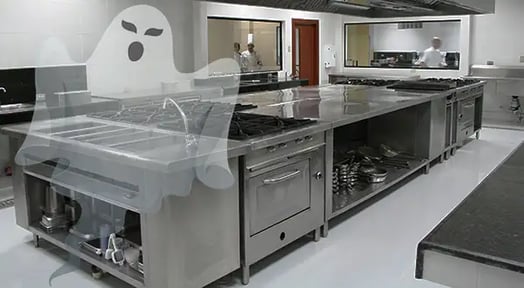The next delivery burger you order might be served up by a ghost — a ghost kitchen, that is.

Real-estate developers are buying space in empty malls and renting trailers in parking lots. They’re transforming them into mobile kitchens to get a taste of the booming delivery biz.
In some cases, the kitchens prepare food from brick-and-mortar establishments. In others, the “restaurants” (like the blandly named Burger Bytes) exist only online.
It’s like a 2-trend sandwich
The death of the American mall and the rise of the food-delivery app have created some mouth-watering opportunities:
- Delivery accounts for 9% of the $282B fast-food sector in the US.
- Those sales are growing faster than drive-through and dine-in.
Some of the most prominent players in ghost kitchens include CloudKitchens (from former Uber CEO Travis Kalanick), Miami’s Reef Technology, and Pasadena-based Kitchen United.
The companies say they can build filet-grade kitchen space at ground-chuck prices. CloudKitchens says a 230-square-foot site can be built in two weeks for $30k, while a 3.5k-square-foot restaurant can cost $1m to outfit.
But some restaurants don’t like what’s on the menu
Last week, we reported on a ghostly controversy in San Francisco, where a chef exposed fake delivery pages that had been generated for her non-delivering restaurant.
This week, the New York City Council is scheduled to hold a hearing on ghost kitchens and their impact on small businesses.
